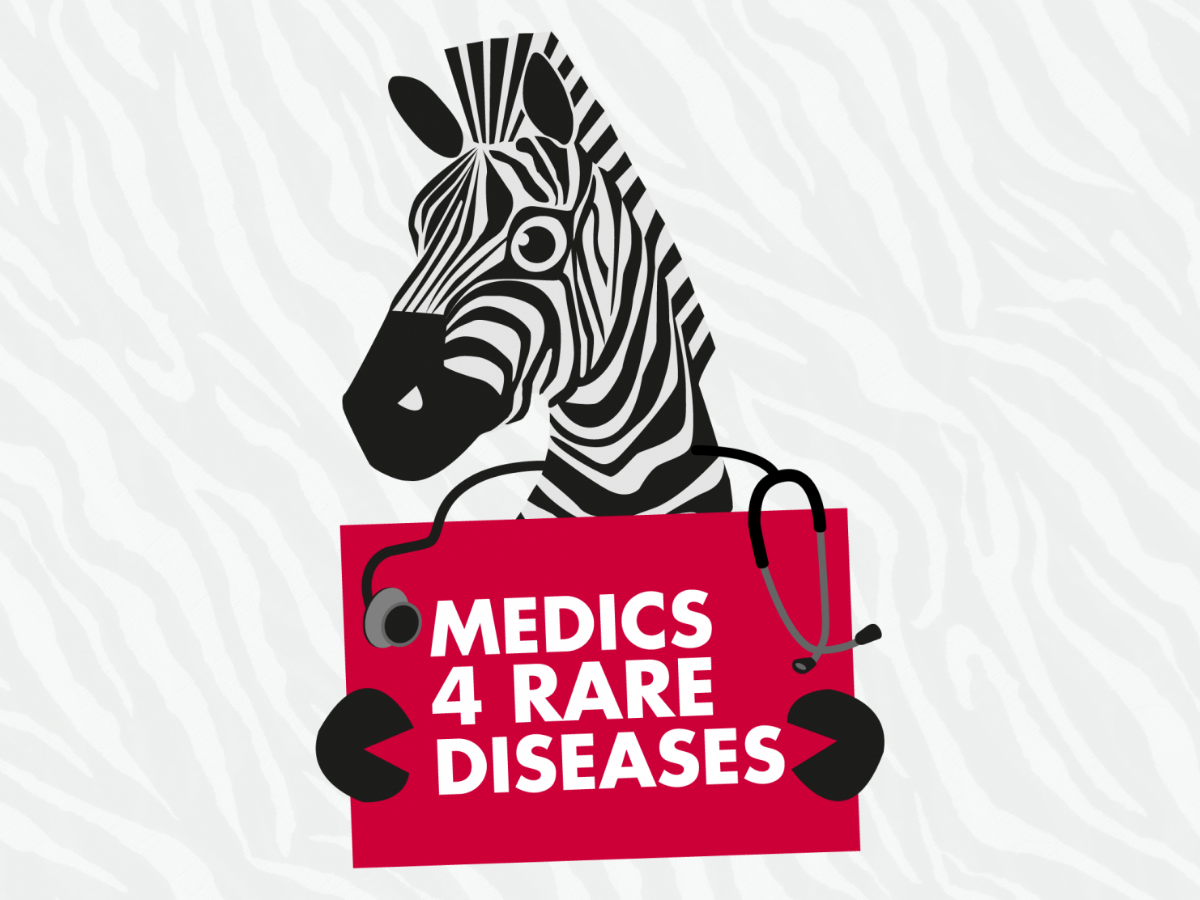There are over 6,000 rare diseases, with some estimated figures even surpassing 7,000. As such, it is incredibly difficult for doctors to know about every single one. Medics4RareDiseases – or M4RD for short – strives to improve education on rare diseases among health professionals, not by educating on each individual disease in detail but by encouraging them to consider the possibility of rare diseases in their patients.
As part of our Rare Disease Day celebrations, we spoke with Dr Lucy McKay, CEO of Medics4RareDiseases, about their work to change rare disease education for the better.
‘We are currently plugging the gap in medical education, to ensure that doctors have the tools they need to give the best experience for people with rare conditions. Today is Rare Disease Day and we would like to encourage every doctor, student and healthcare professional reading this to “dare to think rare”.’
Dare to think rare
The journey to rare disease diagnosis – and thus to appropriately tailored care – is almost always a long one:
‘There are painfully all-to-common themes that patients with rare diseases collectively experience. They wait an average of four years for a diagnosis, often getting passed between different specialists in what we refer to as a “diagnostic odyssey”.’
This uncertain and unpredictable diagnostic odyssey can leave patients feeling lost and alone at a time when support is so desperately needed. These delays in diagnosis lead to perfectly avoidable periods of uncertainty, and can even result in poorer outcomes for diseases that benefit from early intervention.
Lucy and the team behind M4RD believe that considering rare diseases as a possible cause of symptoms should be a part of everyday medicine. Despite the name, rare diseases as a whole are a remarkably common occurrence:
‘There are over 3 million people globally affected by rare diseases; 1 in 17 of us has a lifetime risk of having a rare condition. So whilst each disease is individually rare, they are collectively common. We at M4RD believe that Rare Disease should be recognised as a specialty in its own right. The principles underpinning the diagnosis and management of rare conditions have strikingly common themes and this helped form the basis of Rare Diseases 101.’
The rare disease education gap
Having started the charity when they were medical students, the team behind M4RD knows ‘from first-hand experience that there are gaps in medical curriculums when it comes to training in rare diseases.’ Now doctors themselves, they ‘also know the constraints on those working in the NHS and how important it is to make every second count when it comes to things like additional learning and extra training.’
M4RD’s latest project is an online course titled Rare Disease 101. Completely free to medical staff and students, the course helps providers develop an understanding of rare diseases. Instead of providing information about every single rare disease – a nearly insurmountable task given their number – the course guides healthcare providers to consider rare diseases for every unsolved illness they see:
‘This free crash course starts right from the basics of rare disease and includes real patient experiences and pragmatic tips. Crucially, it demonstrates invaluable tools and resources that the average doctor is unlikely to be familiar with.’
Built by medical professionals for medical professionals, this eight-lesson module covers the basic principles of what rare disease is, how you may suspect a rare disease, challenges faced by those living with a rare disease, and how to support them.
Encouraging doctors to consider rare diseases can make a world of difference. A lack of familiarity with rare diseases can make providers reluctant to pursue them as a possibility, often eliminating every other possibility before considering a rare disease. This is incredibly time-consuming and labour-intensive, and Dr McKay commented that it all too often results in ‘people with rare diseases feeling lost within a healthcare system that simply isn’t set-up to effectively manage their needs.’
Broader education for all staff
Dr Richard Scott is the Clinical Lead for Rare Disease at Genomics England and a Consultant in Clinical Genetics at Great Ormond Street Hospital. Speaking at M4RD’s The Unusual Suspects event in 2020, he noted that ‘currently the greatest hurdle in getting a diagnosis of a rare disease is someone suspecting a rare disease may be at play in the first place.’ There are, by his estimate, around 200 clinical geneticists like himself in the country but he feels increasing this number is not the answer to the problem:
‘The answer is not 200 or even 400 people, it’s about the whole system working to recognise that rare disease is a major group of disease that we need to be set up across healthcare to recognise, diagnose and treat.’
Educating practitioners in every specialty and at every stage of their professional journey to consider the possibility of rare diseases will be integral to reducing the lengthy diagnostic odyssey experienced by patients.
It would be tempting to say that the resources created by Medics4RareDiseases will benefit “countless lives”, but the number is countable: it’s 1 in 17.
Recommended for you

Antidepressant Prescribing at Six-Year High
More people are taking antidepressants than ever. Is this a dark sign of the times or an indication that mental health stigma is changing?

Can AI be Used to Determine Cancer Recurrence?
When cancer patients go into remission, they often worry about it coming back. AI can now help identify those at risk of cancer recurrence.

Pegasus – Still a Threat to the UK?
The notorious Pegasus spyware has been misused to exploit vulnerabilities in devices, even those kept within the walls of Number 10.
Trending

Drug Decriminalisation: Could the UK Follow Portugal?
Portugal’s drug decriminalisation has reduced drug deaths and made people feel safe seeking support. Would the UK ever follow suit?

Calling All Unvaccinated UK Adults
With Covid cases rising, the NHS is urging the 3 million UK adults who remain unvaccinated to come forward.





